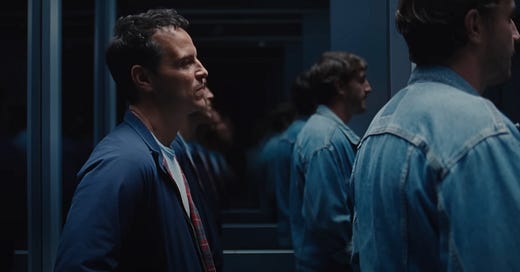Watching
All of Us Strangers (2023)
I was really feeling the absence of good movies about the gay male experience in 20231 and finally Andrew Haigh delivered at the 11th hour. Like many people (I assume) I have a love-hate relationship with Haigh. Weekend? Good! Looking? Honey…
I found myself liking this movie more the more I read glowing reviews of it.2 Pre…




